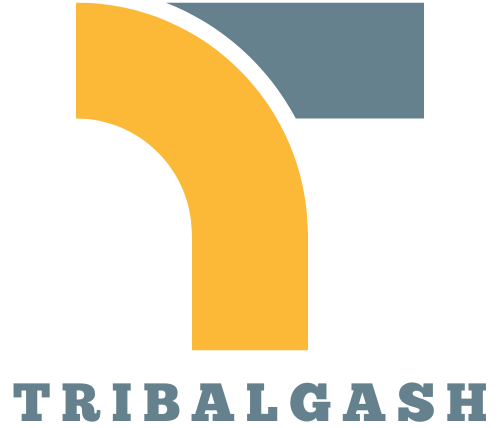In today’s fast-paced world, climbing the career ladder can feel like navigating a maze blindfolded. Enter the career development program—your trusty guide through the twists and turns of professional growth. It’s not just about learning new skills; it’s about transforming potential into performance, all while avoiding the dreaded career stagnation.
Table of Contents
ToggleOverview of Career Development Programs
Career development programs play a pivotal role in navigating professional growth. These structured initiatives offer various resources for skill enhancement and knowledge acquisition, ensuring individuals remain competitive in their fields. Organizations design these programs to help employees identify their strengths and areas needing improvement.
Workshops and seminars often comprise essential components of these programs. Such events allow participants to engage with industry experts, gaining insights into current trends and best practices. Mentorship opportunities also form a crucial part, pairing less experienced individuals with seasoned professionals who provide guidance and support.
In addition to soft skills, many career development programs emphasize technical training. This focus ensures employees stay updated with the latest technological advancements relevant to their roles. Organizations measure the effectiveness of these programs through performance evaluations, encouraging a culture of continuous improvement.
Networking forums are frequently included as well. By connecting individuals with peers across various sectors, these forums foster collaboration and the exchange of ideas. Participants often report enhanced confidence levels and a clearer understanding of their career trajectories following involvement in these initiatives.
Tracking progress through goal-setting remains vital in these programs. By establishing specific, measurable objectives, individuals can monitor their growth and stay motivated. Career development programs ultimately aim to reduce stagnation, enabling participants to reach their full potential within their organizations.
Importance of Career Development Programs
Career development programs play a crucial role in facilitating professional growth. These programs empower individuals to navigate challenges effectively.
Skills Improvement
Skills improvement stands at the forefront of career development programs. Participants engage in workshops and seminars that target both soft and hard skills. Training sessions are tailored to meet industry needs, ensuring relevance and applicability. Real-world scenarios enhance learning, equipping individuals to handle challenges confidently. Mentorship opportunities provide guidance, allowing less experienced employees to learn directly from seasoned professionals. Continuous learning keeps employees competitive. Organizations frequently incorporate feedback mechanisms to refine training and adjust to market trends.
Employee Engagement
Employee engagement significantly benefits from robust career development programs. Programs foster a sense of belonging and commitment to organizational goals. Networking forums create avenues for collaboration, enabling employees to share ideas and experiences. Engaged employees often exhibit higher job satisfaction and greater productivity levels. Organizations that prioritize development initiatives see lower turnover rates, as employees feel valued and invested in their growth. Clear pathways for advancement motivate participants to contribute actively. Training initiatives also cultivate trust, encouraging open communication between employees and management, which results in a more cohesive workplace environment.
Types of Career Development Programs
Career development programs encompass a variety of approaches aimed at enhancing professional skills. Each program type addresses specific needs of individuals and organizations.
Formal Training Programs
Formal training programs provide structured learning environments. Organizations often implement these initiatives to ensure employees acquire necessary hard and soft skills. Workshops and seminars led by industry experts highlight relevant topics, allowing participants to gain insights directly applicable to their roles. These sessions may also include hands-on experiences and practical applications. Typically, such programs span several weeks or months, offering a comprehensive understanding of chosen subjects. They also facilitate collaboration among employees, promoting a team-oriented mindset essential for workplace success.
Mentorship Opportunities
Mentorship opportunities play a crucial role in career growth. During these arrangements, less experienced individuals engage with seasoned professionals for guidance and support. Mentors share insights from their own experiences, helping mentees navigate challenges and discover career pathways. Regular meetings foster personal connections and create a safe space for discussing career aspirations. Such relationships often lead to enhanced confidence and motivation, resulting in more focused professional development. Organizations benefit as well, as mentorship programs can improve employee retention and engagement.
Online Learning Platforms
Online learning platforms offer flexibility for career development. Employees can access a wealth of resources from anywhere at any time, making it easier to balance training with work responsibilities. Various courses cover diverse topics, from technical skills to leadership training, catering to different career objectives. These platforms often feature interactive elements, such as quizzes and discussion boards, enhancing the learning experience. By utilizing self-paced modules, employees can progress according to their own schedules. Organizations frequently utilize these tools to make continuous learning accessible and to keep their workforce competitive.
Implementing a Career Development Program
Implementing a career development program requires a strategic approach that aligns with organizational goals and employee aspirations.
Assessing Employee Needs
Understanding employee needs is crucial in shaping effective career development programs. Organizations should conduct surveys to gather insights regarding skill gaps and interests. Focus groups can provide deeper qualitative data, allowing for nuanced understanding. Additionally, performance reviews reveal strengths and areas for improvement. Keeping communication open encourages employees to express their professional desires, creating a tailored approach that meets individual needs.
Setting Objectives
Establishing clear objectives helps organizations create targeted career development initiatives. Start by defining short-term goals, such as specific skill enhancements, and long-term aspirations like leadership roles. Including employees in the goal-setting process fosters engagement and increases commitment. Objectives should align with organizational priorities to ensure mutual growth. Incorporating measurable benchmarks facilitates tracking progress and ensures accountability throughout the program.
Measuring Success
Measuring success is essential for evaluating the impact of career development programs. Organizations should implement metrics such as employee performance improvements and retention rates. Regular feedback collection allows for adjustments and helps assess participant satisfaction. Using pre- and post-program evaluations provides insights into skill acquisition and personal growth. Monitoring career advancement and promotions of participants shows the effectiveness of development initiatives and reinforces the value of ongoing learning.
Challenges in Career Development Programs
Career development programs face various challenges that can impact their effectiveness. Addressing these issues ensures that programs achieve intended outcomes.
Resource Limitations
Resource limitations often hinder the successful implementation of career development programs. Organizations may lack financial support, leading to fewer training sessions or inadequate materials. Insufficient staffing can also affect program delivery, as trained professionals may not be available to conduct workshops or mentorship sessions. In many cases, companies allocate tighter budgets for developmental initiatives, which compromises quality. Engaging external industry experts might become difficult due to high costs and limited availability. Organizations often fail to prioritize ongoing investment in these programs, resulting in stagnant growth and employee dissatisfaction.
Employee Participation
Employee participation poses another significant challenge within career development programs. Engaging individuals in these programs becomes vital for their success. Resistance can stem from a lack of awareness regarding the benefits, leading to low enrollment numbers. Often, employees may view participation as an added workload instead of a valuable opportunity for growth. In some instances, organizational culture discourages proactive skill-building, resulting in a passive workforce. Leaders must actively promote participation and create incentives that motivate employees to engage. Encouraging a growth mindset and fostering a supportive environment is essential for improving participation rates.
Career development programs are vital for navigating today’s complex professional landscape. They empower individuals to enhance their skills and realize their potential while fostering a culture of continuous learning. By investing in these programs, organizations not only boost employee engagement but also cultivate a more committed workforce.
The structured approach of these initiatives ensures that employees receive the support they need to thrive. Through mentorship opportunities and tailored training, individuals can confidently tackle challenges and pursue their career goals. As organizations prioritize these programs, they create a more cohesive environment that values growth and collaboration, ultimately leading to increased job satisfaction and reduced turnover. Embracing career development is a strategic move that benefits both employees and organizations alike.









